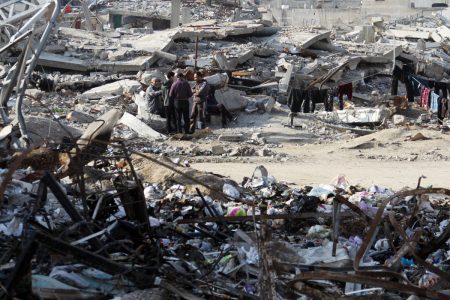The late, great economist John Kenneth Galbraith in his book A Journey Through Economic Time revisited the great economic crisis of 1929 and described in a clear and comprehensible manner the bubble that proceeded the Great Crash which plunged America and the world into the Great Depression.
Although an advocate of the New Deal and a fervent supporter of Franklin Delano Roosevelt he concedes that even that radical economic policy did not manage to wrench America out of the great crisis.
Undoubtedly it tempered the enormous repercussions of the crisis and partially corrected dysfunctions but it failed to spur the desired growth.
That according to Galbraith was brought about only by the war economy when the US after the Japanese attack on Pearl Harbor entered WWII and placed the United States’ productive machine at the service of the country’s defence needs.
Every productive unit and capability of the land was marshaled in the production of war ships, war planes, tanks, weapons systems, and all types of equipment and goods needed to support the armed forces.
It was the only moment in economic history that full employment was achieved with the absolute utilisation of available productive means and capabilities.
The current conditions may not exactly be a war situation but they are certainly similar as they entail the coercive enforcement of measures, self-limitation, and the loss of capabilities.
It is no coincidence that many have noted that the planet is experiencing war economy conditions as regards the particularity and uniqueness of the situation and the need to adopt unorthodox measures and policies, especially in the sphere of economics.
The way to address the triptych of the public health crisis, the resulting recession, and the desired restart and revival is not obvious but it certainly will not be found in existing tools and means of economic policy or by invoking the old stereotypes of a balanced budget and primary surpluses as a solution.
One will have to employ new ideas and inspired individuals who are able to plan effective policies and discover adequate means to mobilise the now dormant productive forces of the country.
The government’s economic team and the prime minister personally must broaden their circle of interlocutors and approach people out of the box of governance and forces which are not necessarily political but have experience in effectively dealing with complex situations in times of crisis.
There are many distinguished divs out there in the academic and business communities that are able to offer their good services.
To manage the public health crisis the government trusted the scientific community and took what proved to be the right decisions in a timely manner.
It can do the same in the ensuing economic crisis.
The prime minister can order the formation of a strong consultative body as it did with the public health committee chaired by Epidemiology Professor Sotiris Tsiodras.
The need exists and the way is wide open.


